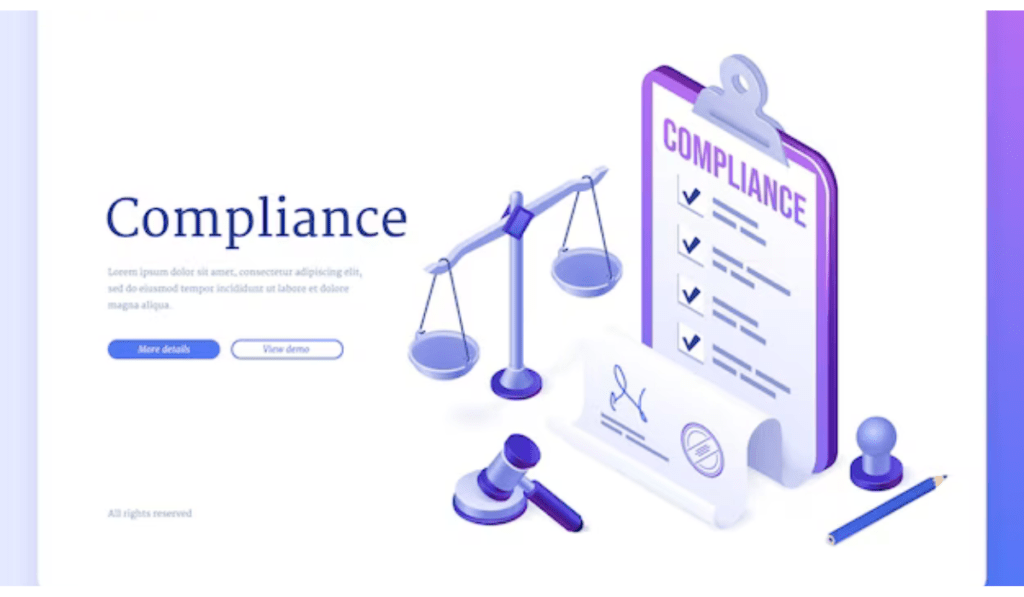Introduction
For Small and Medium-sized Enterprises (SMEs) in Singapore, navigating legal compliance is crucial for sustained success and growth. With a myriad of regulations to adhere to, understanding and implementing legal compliance measures is vital. This comprehensive guide aims to provide SMEs in Singapore with detailed insights into the complexities of legal compliance, ensuring a solid foundation for operations.
1. Overview of Legal Compliance for SMEs
Gain a comprehensive understanding of the legal landscape that SMEs operate within in Singapore. Explore the key regulations, statutes, and industry-specific compliance requirements.
2. Business Registration and Regulatory Requirements
Navigate through the process of business registration and the regulatory requirements for SMEs. Understand the legal obligations concerning business licenses, permits, and registrations.
3. Employment Laws and HR Compliance
Delve into the legal aspects of employment laws and human resources compliance. Explore hiring practices, employment contracts, workplace safety, and other HR-related legal considerations.
4. Data Protection and Privacy Laws
Understand the implications of data protection and privacy laws for SMEs in Singapore. Explore compliance requirements under the Personal Data Protection Act (PDPA) and measures to safeguard sensitive information.
5. Tax Compliance for SMEs
Navigate through the tax compliance landscape for SMEs. Explore Goods and Services Tax (GST), corporate income tax, and other tax obligations, ensuring adherence to the Inland Revenue Authority of Singapore (IRAS) guidelines.
6. Contractual Compliance and Commercial Agreements
Explore the legal aspects of contractual compliance for SMEs. Understand the importance of clear, enforceable contracts and the legal considerations in drafting and executing commercial agreements.
7. Intellectual Property Protection
Navigate through the legal framework for intellectual property (IP) protection. Explore trademark, copyright, and patent laws to safeguard SMEs’ innovations and brand assets.
8. Environmental and Health Compliance
Delve into the legal requirements for environmental and health compliance. Understand the regulations governing waste management, workplace safety, and environmental sustainability for SMEs.
9. Financial Reporting and Compliance
Explore the legal obligations related to financial reporting for SMEs. Understand compliance requirements under the Accounting and Corporate Regulatory Authority (ACRA) and the importance of transparent financial practices.
10. Cybersecurity and IT Compliance
Navigate the legal landscape of cybersecurity and information technology (IT) compliance. Understand the regulations and best practices for securing digital assets and ensuring data integrity.
FAQs (Frequently Asked Questions)
Q1: What licenses are required for starting a small business in Singapore?
A1: The licenses required vary based on the industry. Common licenses include the Business Registration, Food Establishment License, and Retail License. Legal advice is recommended to determine specific licensing needs.
Q2: How can SMEs ensure compliance with data protection laws?
A2: SMEs can ensure compliance with data protection laws by implementing clear privacy policies, obtaining consent for data collection, and regularly reviewing and updating security measures. Legal practitioners assist in crafting robust data protection strategies.
Q3: What are the penalties for non-compliance with tax regulations?
A3: Non-compliance with tax regulations can result in penalties, fines, and legal actions. It is essential for SMEs to stay updated on tax obligations and seek professional advice to avoid repercussions.
Q4: How can SMEs protect their intellectual property in Singapore?
A4: SMEs can protect their intellectual property through registration, monitoring, and enforcement. Legal practitioners guide SMEs in identifying and securing their intellectual property assets.
Q5: What steps should SMEs take to ensure cybersecurity compliance?
A5: SMEs should implement cybersecurity policies, conduct regular risk assessments, and stay informed about evolving cyber threats. Legal advice helps in developing and maintaining robust cybersecurity measures.
Conclusion
Navigating legal compliance is an integral aspect of managing and growing SMEs in Singapore. This comprehensive guide equips SME owners and decision-makers with the knowledge needed to navigate the complexities of legal compliance successfully. By prioritizing adherence to regulations, SMEs can build a solid foundation for sustained success, minimize legal risks, and contribute to the overall growth of the business landscape in Singapore.
Signup for our website newsletter to be updated on the latest in Singapore law!


